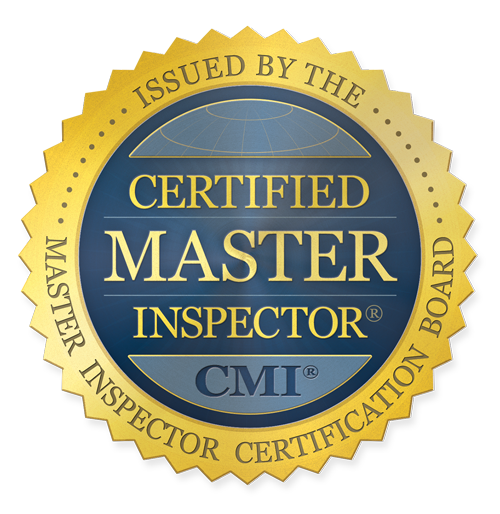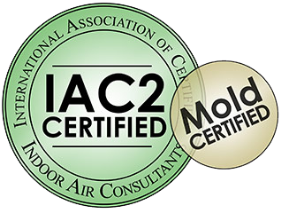Congratulations! You’re ready to buy a house, and you’ve found the cutest option in Port Orange. The only challenge is that it’s an older home, and you’re wondering if this might cause any problems with your investment. Every house is different, of course, but there’s one aspect of owning a home that remains consistent: Insurance.
Once you buy the house, you may at one point want to consider changing insurance carriers for a better policy. This is where it’s important to understand what might be required, especially since you own an older home.
If you’re buying a home in Port Orange or anywhere in Central Florida, prospective insurance carriers MAY request a 4-Point Inspection before binding or issuing insurance coverage. While not a full home inspection, it’s still important to understand what a 4-Point Inspection involves so that you can be prepared for the results and what could have an influence on your potential insurance carrier’s underwriting.
So what role does a 4-point inspection play, and how valuable is it to someone hoping to buy a home? First, it’s important to note that it is not a substitute for a full home inspection. It’s specifically designed for insurance carriers to evaluate four major systems.
4-Point Inspections Provide Valuable Information For Insurance Companies & Homeowners.
Many central Florida home insurance companies now request a 4-point inspection before issuing an insurance policy, and to determine the total premium price. The better shape a home is in, the lower the cost of insuring it.
When considering older homes in Port Orange, FL, and the surrounding areas, Super Inspection Pros is the area’s most trusted home inspection company. As InterNACHI-certified home inspectors, SIP’s final inspection reports provide objective information used by insurance companies to determine a home’s structural condition and the status of key home systems. Depending on what we find, the report may also provide valuable information that gives you a competitive edge in real estate negotiations.
While these industry-standard inspections are used to help insurance companies learn more about the home, 4-Point inspections also help homeowners and their Realtors:
- Learn more about the status of the home’s four most expensive systems to replace (roof, HVAC, electrical, and plumbing).
- Assess whether the home is priced accurately and whether significant maintenance or repair work is required for these systems in the near future.
- Determine whether the home is insurable or not.
- Learn about repairs, replacements, or enhancements that could lower the cost of monthly premiums.
A Solid Roof System Is Essential For Central Florida Homes
Florida insurance carriers are strict when it comes to acceptable roofing systems. Due to our notoriously heavy winds and rains during hurricane season, homeowners’ insurance policies can be more costly for roofs 15 years old or older, depending on your carrier and the roof’s condition.
As stated on Florida’s PACE Funding website:
Insurers cannot deny coverage solely based on roof age if under 15 years old. For roofs over 15 years old, homeowners can get them inspected and certified to have at least five more years of useful life instead of requiring immediate replacement.
Roofs exceeding the 15-year mark or those in poor shape often result in steeper premium prices until they’re professionally repaired or replaced.
HVAC Functionality & Efficiency Is a Must in Central Florida
A 4-point inspection also includes the HVAC system. If a fire or moisture damage in a home can be directly connected to an outdated or poorly maintained HVAC system, the insurer may refuse to cover related damages. Therefore, a passing inspection from a licensed home inspector, such as SIP, provides the evidence insurers require when offering or renewing coverage at reasonable rates.
Updated Electrical Systems Reduce the Risk of Home Fires
Insurance carriers also have a vested interest in your home’s electrical system. According to the Electrical Safety Foundation International, electrical fires are the third-leading cause of home fires, resulting in an average of nearly 500 deaths, over 1,400 injuries, and $1.3 billion in property damage annually.
For these reasons, your homeowner’s carrier may want to know the status of the electrical system in an older home. These days, we use panels and wiring products that are better designed to handle significant energy loads and are also more fire- and moisture-resistant.
Among other things, an outdated electrical panel is more susceptible to rust and corrosion, breaker malfunctions, overheating (which can lead to fire), sparking, and inefficient circuits. Similarly, knob and tube wiring, a standard up through the 1940s, is a significant fire hazard, as are cloth-covered wires, which are common in homes built before the 1970s in Port Orange, FL.
The electrical portion of a 4-point inspection evaluates all of this and more, outlining exactly what’s needed to bring outdated electrical systems up to current building code standards.
Don’t Let Old Plumbing Drain the Rest of Your Savings Away
Finally, a 4-point inspection informs insurance agencies about the status of the plumbing system, including any signs of potential issues with the sewer or septic system.
As you can imagine, plumbing leaks or flooding related to plumbing can cause tens of thousands of dollars in damage to a home. However, hidden leaks or moisture control issues can cause similar damage behind the scenes, leading to mold and mildew that can result in costly structural rot.
Plumbing inspections also include a detailed look at the plumbing system, as we look for:
- Updated plumbing materials.
- The age and condition of the water heater.
- Functioning faucets, drains, sinks, toilets, showers, and baths.
- Any evidence of current leaks or mold/mildew damage that indicates a hidden or previous leak.
- Any signs of issues with the sewer or septic lines, in which case we’ll recommend a sewer scope inspection.
From there, you can determine what, if anything, should be repaired before the close of escrow (possibly negotiating seller’s credits) or the steps you’ll want to take once the home is yours.
Schedule A 4-Point Inspection With SIP
Are your prospective insurance carriers requiring a 4-point inspection of your potential new home? SIP’s accurate and comprehensive inspection reports provide insurance carriers with the necessary information. Plus, you’ll glean information about what’s required – or improvements you can focus on in the future – to keep homeowner’s insurance premiums as low as possible.
Schedule your 4-point inspection with Super Inspection Pros, and you’ll gain instant access to partners who can provide you with accurate information about a prospective home’s safety, structural integrity, and critical systems. We guarantee a 24-hour turnaround on our finalized inspection reports, ensuring you have accurate and detailed information to share with prospective insurance carriers and make informed decisions before closing the deal.

